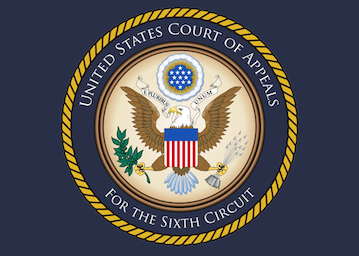By Gerald L. Maatman, Jr., Shannon Noelle, and Anna Sheridan
Duane Morris Takeaways: On June 25, 2025, in In Re Wawa Data Security Litigation, No. 24-1874, 2025 WL 175035 (3d Cir. June 25, 2025), the Third Circuit approved a $3.2 million class fee award for class counsel contained in a settlement agreement finding that fees can be based on relief made available to the class and does not have to be capped by a percentage of the relief actually claimed in low-harm data breach security class action where the claim rate is notoriously low. The Third Circuit also held that clear sailing agreements (agreements not to challenge class counsel fee petitions) and fee reversions (where amount of agreed-upon fee not awarded reverts to defendant) are not per se impermissible and, rather, there must be evidence of collusion or harm to class members to invalidate a fee award on this basis.
Case Background Leading to Wawa I
On December 19, 2019, Wawa — a convenience store chain with 850 locations throughout the mid-Atlantic and Florida that sells fuel as well as convenience store items — released a public statement through its CEO detailing a data security breach Wawa had experienced in which hacker stole payment information including credit and debit card numbers used at all Wawa stores and fuel dispensers. As the Third Circuit noted “a race to the courthouse promptly ensued” with plaintiffs filing 15 different state statutory and common law class action claims that were ultimately consolidated by Chief Judge Juan Sanchez of the U.S. District Court for the Eastern District of Pennsylvania on January 8, 2020. In Re Wawa Inc. Data Security Litigation, Civ No. 24-1874, at *6 (3d Cir. June 25, 2025) (hereafter “Wawa II”). Three litigation tracks emanated out of this consolidation, including: (1) a financial institution track; (2) an employee track; and (3) a consumer track. The consumer track is the subject of the Wawa II decision at issue and involved numerous common law, state consumer protection, and data privacy claims. The consumer plaintiffs sought compensatory relief and an injunction requiring Wawa to: (1) strengthen its data security systems and monitoring procedures to prevent further breaches; (2) submit to future annual audits of those systems; and (3) provide several layers of free credit monitoring and identify theft insurance to all class members.
Several months after the consolidated class complaint was filed, settlement talks began in which the parties retained a mediator to supervise a mediation session that lasted almost 12 hours. As a result of this mediation session, the parties agreed Wawa would provide either compensation for out-of-pocket losses or a Wawa gift card. Plaintiffs were divided into three tiers: (1) customers who affirmed they spent at least some time monitoring their credit card statements were eligible for a $5 Wawa gift card (this tier was subject to a $6 million cap and a $1 million floor); (2) customers who saw a fraudulent charge that required some effort to sort out were eligible for a $15 Wawa gift card (this tier was subject to a $2 million cap with no floor); and (3) customers who could show certain out-of-pocket losses caused by the breach could receive up to $500 in cash (this tier was subject to a $1 million cap without a floor). Wawa also agreed to a range of injunctive relief to improve its security systems through a continuation of a $25 million investment in security that the Wawa board authorized pre-settlement in February 2020. This security system improvement commitment included retaining a security firm to evaluate compliance, conducting an annual penetration test for potential vulnerabilities to data breaches, operating a system to encrypt payment information at sale terminals, implementing security procedures at sale terminals, and maintaining written security programs and policies. Wawa further committed to provide class members notice of the settlement via updates posted in stores, a settlement website, and a press release. After the terms for compensatory and injunctive relief were settled, the parties then agreed that Wawa would pay class counsel $3.2 million in attorneys’ fees and related costs “paid by Wawa as directed by the Court” and further providing that Wawa would “cooperate with Class Counsel, if and as necessary, in providing information Class Counsel may reasonable request from Wawa in connection with preparing the petition” for fees. Id. at *9. The settlement agreement was silent about what would happen if the district court awarded less than the full $3.2 million in fees.
On July 30, 2021, Judge Gene Pratter of the Eastern District of Pennsylvania issued an opinion preliminarily approving the settlement finding it “fair, reasonable, and adequate” as the settlement negotiations took place at arm’s length,” the relief offered provided both monetary and injunctive components, and there was “no reason to doubt that settlement [would] provide a tangible benefit to plaintiffs and proposed class members while avoiding the costs and risks associated with continued litigation.” In re Wawa, Inc. Data Sec. Litig., No. CV 19-6019, 2021 WL 3276148, at *9, 11 (E.D. Pa. July 30, 2021).
On November 10, 2021, class member Theodore Frank filed objections arguing: (1) Wawa’s notice procedures were improper; (2) the gift card claims rate was too low; (3) the attorneys’ fees contemplated by the settlement agreement were too high given that most of the relief made available to the class was not cash-based; and (4) the fee provision of the agreement contained an improper clear sailing (i.e., an agreement not to challenge class counsel’s fee petition) and fee reversion (i.e., agreement that any amount of the $3.2 million not awarded to class counsel reverts to Wawa) that restricted the district court’s ability to fix any potential imbalance between attorneys’ fees and the final relief awarded to the class. Frank raised no objection to the certification process or the certification decision.
In response to this objection, a Second Amended Settlement Agreement was submitted on November 12, 2021 making tier 1 gift cards automatically available to mobile application users and eliminating the gift cards’ expiration date. An Objector, Frank, submitted further objections that the settlement would permit any amount of attorneys’ fees short of the $3.2 million agreed-upon to revert back to Wawa. As a result, on February 4, 2022, counsel submitted a Third Amended Settlement Agreement clarifying that Wawa would not benefit from approval of less than $3.2 million in attorneys’ fees and committing that any shortfall would be distributed to tier 1 and tier 2 gift card holders. On April 20, 2022, Judge Pratter issued an opinion giving final approval of the settlement agreement and deeming it fair, reasonable, and adequate, as required by Rule 23(e)(2).
Regarding the attorneys’ fee award, Judge Pratter awarded the agreed-upon amount of $3.2 million, allocating $3,040,060 to attorneys’ fees, $45,940 to litigation expenses, and $100,000 for settlement administration expenses. Judge Pratter found that the Gunter factors supported an award of this amount which requires consideration of: (1) the size of the fund created and the number of persons benefitted; (2) the presence or absence of substantial objections by members of the class to the settlement terms and/or fees requested by counsel; (3) the skill and efficiency of the attorneys involved; (4) the complexity and duration of the litigation; (5) the risk of nonpayment; (6) the amount of time devoted to the case by plaintiffs’ counsel; and (7) the awards in similar cases. See Gunter v. Ridgewood Energy Corp., 223 F.3d 190 (3d Cir. 2000). For Gunter factor 1, Judge Pratter relied on the value of the funds made available to the class; for factor 2 the only substantive objections before the Court were raised by Frank and were addressed in the third iteration of the settlement agreement; for factor 3 the Judge was satisfied that the skill of the attorneys involved weighed in favor of approval; for factor 4 the Judge noted that data breach litigation is “inherently complex;” for factor 5 the fact that counsel took the case on a contingency basis weighed in favor of approval; for factor 6 the attorneys spent 6,000 hours on the litigation; and, as to factor 7 the Judge noted that other data breach class actions have resulted in fee awards significantly higher. In re Wawa, Inc. Data Sec. Litig., No. CV 19-6019, 2022 WL 1173179, at *11 (E.D. Pa. Apr. 20, 2022). A lodestar cross-check also supported the fee award.
Third Circuit’s Decision in Wawa I
Objector Frank challenged the fee award portion of the settlement agreement on appeal to the Third Circuit arguing that the provision on fees constituted a “clear sailing” agreement because, according to Frank’s interpretation of the provision, Wawa agreed not to contest a fee request from class counsel and Frank also claimed that a “fee reversion” was still contained in the agreement despite the fact that the amended iteration of the settlement agreement clarified that any amount not awarded to counsel would be distributed amongst the class and would not revert back to Wawa. In Re: Wawa, Inc. Data Security Litigation, 85 F.4th 712, 717-18 (3d Cir. 2023) (hereinafter “Wawa I”). Frank argued that attorneys’ fees should be capped at 25% of the amount actually awarded to the class, not the amount offered to the class. The Third Circuit issued a decision in Wawa I, on November 2, 2023, vacating the fee award and remanding the action back to the district court to determine the reasonableness of the attorneys’ fee in light of the benefit rendered to the class and to evaluate the presence of side agreements indicating “collusion,” i.e. a commitment from Wawa not to dispute a fee request from class counsel or an agreement amongst the parties that any portion of the attorneys’ fee not awarded to class counsel would revert back to Wawa. Id. at 727. The Court also remanded for additional consideration about the reasonableness of the award finding that the district court “saw itself as bound to consider only the funds made available to the class” when it could evaluate reasonableness by reference to “either amounts paid or amounts made available.” Id. at 725-26.
On remand, Judge Pratter requested the parties provide submissions containing any information they believed she should consider based on the panel’s decision in Wawa I. See Wawa II, at *7 (3d Cir. June 25, 2025). Objector Frank expressly declined to argue that collusion occurred between counsel for the class and Wawa and suggested the panel used the word “collusion” as “semantic shorthand” to consider potential conflicts with broad brushstrokes. Class counsel and Wawa submitted declarations that there was no collusion. Id. Objector Frank pointed out that counsel admitted there was a clear sailing agreement in a joint declaration class counsel filed in October 2021 and again proposed that an attorney fee award should be based on actual rather than proposed recovery. Id. Class counsel countered that Objector Frank had conceded there was no collusion. Id. On April 9, 2024, Judge Pratter issued an opinion and judgment that the fee awarded was reasonable and that there were no side agreements or anything problematic in settlement negotiations which were conducted at arms’ length under the supervision of a mediator. See 2024 WL 1557366, at *7-13. She specifically found that Wawa’s agreement to “cooperate” in the preparation of a fee petition meant no more than the common meaning of that term which did not waive Wawa’s right to object to fees. Id. at *7. On the issue of fee reversion, Judge Pratter found that there was “never any discussion of any tradeoff” and any insinuation of an unintentional fee reversion was “diligently corrected” prior to her final approval of the settlement. Id. at *10. On the issue of reasonableness of the fee award, Judge Pratter again evaluated the funds offered finding the gift cards to be a “meaningful benefit” because they “closely approximate cash” and that the injunctive relief was also “central” to the award and “weigh[ed] strongly in favor” of granting the fee figure. Id. at *14-17. Judge Pratter further acknowledged that the appeal and remand proceedings already reduced the value of counsel’s fee by an estimated $408,492. Id. at n.13.
Third Circuit’s Decision in Wawa II
On appeal for the second time to the Third Circuit in Wawa II, Objector Frank mounted three arguments, including: (1) Judge Pratter did not follow the panel’s mandate in Wawa I which he claimed found that a clear sailing agreement and intentional fee reversion existed between counsel; (2) Judge Pratter’s findings as to the clear sailing and fee reversion were clearly erroneous; and (3) Judge Pratter erred by relying on the amount “made available” to the class as the basis of the fee award rather than the amount actually paid to class members. Wawa II, 2025 WL 1750352, at *9-12. The Third Circuit rejected all three arguments and affirmed the fee award.
First, the Third Circuit found the Wawa I panel did not hold that a clear sailing agreement existed or that the fee reversion was intentional. Rather, the parties and Judge Pratter “assumed” the existence of a clear sailing agreement and the panel followed suit but the issue was never squarely decided. Id. at *9-10. Likewise, the Wawa II panel did not agree that Wawa I found that any fee reversion was intentional. Id. In any event, the Wawa II Court clarified that clear sailing agreements and fee reversions are not “per se impermissible” but are rather “red flags” requiring further scrutiny which they felt satisfied Judge Pratter performed during the remand proceedings. Id. The Third Circuit held, as a result, that Judge Pratter did comply with the Wawa I mandate. Id. at 10.
Second, applying the clearly erroneous standard to Judge Pratter’s factual findings, the Third Circuit agreed with Judge Pratter’s finding that there was no clear sailing agreement or intentional fee reversion indicating collusion. Id. at 10-12. The Wawa II Court assessed and agreed with Judge Pratter’s findings that the language in the settlement agreement on fees did not constitute a clear sailing agreement and, regardless, Judge Pratter “thoroughly examined the parties’ negotiation process” and found it to be devoid of any evidence of collusion or negative implications for the class. Id. at *11. The panel afforded “great deference” to the Judge’s decision to credit testimony from Wawa’s counsel on this issue. The panel also did not find any credible evidence that the class was harmed at all by the provision on attorneys’ fees. Id. Further, the Court also agreed that any fee reversion in the initial draft of the settlement agreement was unintentional and due to counsel’s impression that the fee award was low and therefore it was unlikely the court would award anything less. Id.
Third, on the issue of the reasonableness of the fee award, the Court agreed with the district court that the fee award was reasonable. Id. at 12-14. In support of this conclusion, the Court found that the gift cards were designed to be spendable cash at any Wawa store, three-fourths of Wawa’s inventory is under $5, and the gift cards did not have an expiration date. The Court further acknowledged the injunctive relief that the class received as justifying the amount of attorneys’ fees which “they themselves requested in the Consolidated Complaint” and, though “difficult to value,” nevertheless “has real value.” Id. at *13. The Third Circuit disagreed with Objector Frank that the injunctive relief should not be considered in evaluating the reasonableness of the award because Wawa was already in the process of implementing the improved security measures pre-settlement, finding that “Wawa’s post-settlement security updates and formal commitment to the relief are attributable to the settlement.” Id. (emphasis added). Finally, and of significant note, the Court took into account the fact that the low claim rate present—the class consisted of 22 million members and 563,955 claims which meant a claim rate of 2.56%—is typical in low-harm data breach class action settlements, such as this one. Id. at *13-14. Though the claim rate is axiomatically low given the low overall harm, this does not negate the attorney time dedicated to finalizing meaningful relief to address the alleged harms at issue. Id. The Court also affirmed the district court’s use of the Gunter factors and lodestar cross check to support its analysis. Id. at *14.
Implications of Wawa II Decision
The Wawa II decision evidences the Third Circuit’s endorsement of basing fee awards in class settlements on the recovery offered to class members, setting aside the claim rate, in the context of low-harm data breach class actions where low claim rates are well-documented. So long as the recovery secured is meaningful (be it through injunctive, monetary, or other means) and the hours class counsel spent on securing that relief justify the award sought, the fee petition is colorable. This provides good guidance for defense counsel and objectors that in objecting to fee awards in such cases more is needed than the mere suggestion of a clear sailing agreement or fee reversion, and rather evidence of harm to the class or collusion amongst counsel must be shown to demonstrate that the fee is unreasonable or exorbitant.







